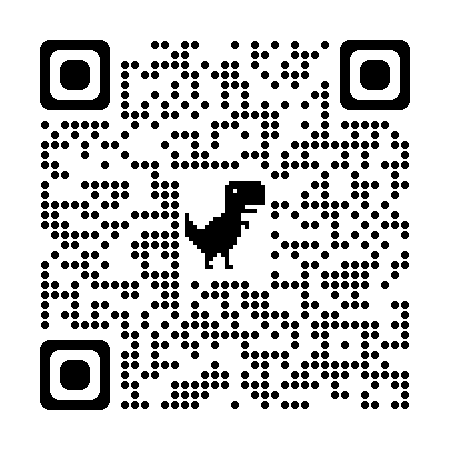
Workforce Connections
By Eboni Simpson-Hodge and Chad Gregorius | January 2024

As school counselors, we have the privilege of being the nexus between students and their futures. Increasingly, that work includes not only building or strengthening college-going mindsets in young people, but also helping them explore their career interests and educating them about the mindsets and behaviors needed for success in the workforce.
National Student Clearinghouse data shows that roughly half of seniors in southern Nevada enroll into college immediately after graduation. Although our high schools in Las Vegas have programs that support a college-going culture, it is imperative for comprehensive school counseling programs to include components that support all students. This is especially true for the students that choose postsecondary pathways other than college. Our programs can accomplish this by connecting learning to in-demand careers. But where to start? How do you find out which careers are in demand? How can you help students (and even their families) prepare for those careers? Here we discuss our journey of workforce development partnerships and how we are expanding opportunities available to our graduates.
In 2019, the Southern Nevada Local Workforce Development Board, called Workforce Connections, selected five school counselors to work in a year-long fellowship program. The goal was for high school counselors to learn about the workforce needs in our area and how to help our students and families access an ecosystem of supports designed to address those needs. This was a first-of-its-kind collaboration between a local workforce development board and a large public school district. We first learned about this not-so-little thing called WIOA (pronounced “wee-oh-uh”), the Workforce Innovation and Opportunity Act.
WIOA is landmark federal legislation designed not only to help people with barriers to find high-quality jobs and careers, but also to help employers find and retain employees. In southern Nevada, Workforce Connections brings together a variety of WIOA-funded providers in one place where people are connected to employment. In our system, these one-stop centers are called EmployNV Hubs. In other areas around the country, they might have different names. They are all built on the U.S. Department of Labor’s American Job Centers system.
Once enrolled in WIOA, participants are coached through all aspects of career development (learn about enrollment requirements). Although not every high school student will be suitable and eligible for WIOA enrollment, the services available to participants helps school counselors find local organizations that are working alongside us to help make an impact on our youth.
Participants start with skills assessments and interest inventories and are then connected with workforce readiness training/education, financial aid, computer access, resume writing workshops, interview coaching and various supportive services (transportation, child care, work uniform/supplies, etc.). Youth still in high school also receive dropout prevention and postsecondary planning support, paid and unpaid work experiences and guidance for transition into college, junior college, certificate programs and direct to work.
As Workforce Fellows, the five of us worked to figure out how to leverage this new world of WIOA to expand our programs in the career development domain and connect WIOA with our students? The school district in Las Vegas is very large and very diverse. With our goal to create resources that could be implemented in all of our high schools, we developed the Seven Elements of Career Development (see list below). Our approach was to utilize resources available through our WIOA providers to help teach students these elements throughout high school.
Seven Elements of Career Development
The most powerful thing we learned as Workforce Fellows is that there is a system of community partners in our area who are ready and willing to help our youth and their families to find rewarding careers. Two very important indirect services that drive comprehensive school counseling program delivery are collaboration and referrals. We recognized that we could improve student outcomes by collaborating with and referring to these WIOA providers.
We hope that this story helps inspire you to make the first phone call to your American Job Center. Trust us: When you call and say you are a school counselor who wants to build a relationship with them to help your youth and families, they might just drop the phone in excitement!
This article is based on our breakout session at the 2023 ASCA Annual Conference. View the slide deck
Use the QR code below to view the Seven Elements of Career Development:

Eboni Simpson-Hodge (simpsen@nv.ccsd.net) is a college and career development counselor, a member of the Southern Nevada Talent Development Collaborative, a Workforce Fellow and a BYU proctor. She was named 2023 Nevada School Counselor of the Year. Chad Gregorius (gregocm@nv.ccsd.net) is a counselor specialist with the Southern Nevada Talent Development Collaborative and with the Guidance & Counseling Department, College, Career, Equity and School Choice Unit for Clark County School District.
National Student Clearinghouse data shows that roughly half of seniors in southern Nevada enroll into college immediately after graduation. Although our high schools in Las Vegas have programs that support a college-going culture, it is imperative for comprehensive school counseling programs to include components that support all students. This is especially true for the students that choose postsecondary pathways other than college. Our programs can accomplish this by connecting learning to in-demand careers. But where to start? How do you find out which careers are in demand? How can you help students (and even their families) prepare for those careers? Here we discuss our journey of workforce development partnerships and how we are expanding opportunities available to our graduates.
In 2019, the Southern Nevada Local Workforce Development Board, called Workforce Connections, selected five school counselors to work in a year-long fellowship program. The goal was for high school counselors to learn about the workforce needs in our area and how to help our students and families access an ecosystem of supports designed to address those needs. This was a first-of-its-kind collaboration between a local workforce development board and a large public school district. We first learned about this not-so-little thing called WIOA (pronounced “wee-oh-uh”), the Workforce Innovation and Opportunity Act.
WIOA is landmark federal legislation designed not only to help people with barriers to find high-quality jobs and careers, but also to help employers find and retain employees. In southern Nevada, Workforce Connections brings together a variety of WIOA-funded providers in one place where people are connected to employment. In our system, these one-stop centers are called EmployNV Hubs. In other areas around the country, they might have different names. They are all built on the U.S. Department of Labor’s American Job Centers system.
Once enrolled in WIOA, participants are coached through all aspects of career development (learn about enrollment requirements). Although not every high school student will be suitable and eligible for WIOA enrollment, the services available to participants helps school counselors find local organizations that are working alongside us to help make an impact on our youth.
Participants start with skills assessments and interest inventories and are then connected with workforce readiness training/education, financial aid, computer access, resume writing workshops, interview coaching and various supportive services (transportation, child care, work uniform/supplies, etc.). Youth still in high school also receive dropout prevention and postsecondary planning support, paid and unpaid work experiences and guidance for transition into college, junior college, certificate programs and direct to work.
As Workforce Fellows, the five of us worked to figure out how to leverage this new world of WIOA to expand our programs in the career development domain and connect WIOA with our students? The school district in Las Vegas is very large and very diverse. With our goal to create resources that could be implemented in all of our high schools, we developed the Seven Elements of Career Development (see list below). Our approach was to utilize resources available through our WIOA providers to help teach students these elements throughout high school.
Seven Elements of Career Development
- Know Yourself: Learn about values by exploring personal interests, abilities, strengths and weaknesses.
- Career Plan: Apply values to identify specific career clusters and postsecondary plans
- Future Planning: Learn about all of the options available after high school.
- Now Matters: Skills learned in classrooms help to develop workplace readiness skills
- People Matter: Developing effective relationships, interpersonal skills and adaptability skills
- Give Back: Volunteering and community service
- Try It Out: Workplace exposure, work experience and work-based learning
The most powerful thing we learned as Workforce Fellows is that there is a system of community partners in our area who are ready and willing to help our youth and their families to find rewarding careers. Two very important indirect services that drive comprehensive school counseling program delivery are collaboration and referrals. We recognized that we could improve student outcomes by collaborating with and referring to these WIOA providers.
We hope that this story helps inspire you to make the first phone call to your American Job Center. Trust us: When you call and say you are a school counselor who wants to build a relationship with them to help your youth and families, they might just drop the phone in excitement!
This article is based on our breakout session at the 2023 ASCA Annual Conference. View the slide deck
Use the QR code below to view the Seven Elements of Career Development:

Eboni Simpson-Hodge (simpsen@nv.ccsd.net) is a college and career development counselor, a member of the Southern Nevada Talent Development Collaborative, a Workforce Fellow and a BYU proctor. She was named 2023 Nevada School Counselor of the Year. Chad Gregorius (gregocm@nv.ccsd.net) is a counselor specialist with the Southern Nevada Talent Development Collaborative and with the Guidance & Counseling Department, College, Career, Equity and School Choice Unit for Clark County School District.